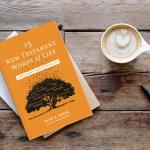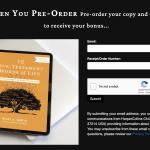I was recently in SoCal talking to graduate students about higher ed and the state of the job market. One student asked a question that I get a lot: Should I even try to do a PhD if the job market is so bad? Here are the thoughts I shared.
Should I Do a PhD with the Job Market So Bad?
In 2009, when I was pitching my book idea to publishers, Prepare, Succeed, Advance: A Guidebook for Getting a PhD in Biblical Studies and Beyond, my editor friend Shirley Decker-Lucke kinda laughed and said: “The book should just have one page with one sentence: ‘Don’t do it.'” She was right to be discouraged by the job market. Since 2008, new academic jobs (especially in the humanities) are very hard to find, the competition is fierce, and even if you are one of the “lucky ones,” salaries at most private colleges are…disappointing.
So, I do think that it is crucially important that we current academics are brutally honest with our students about what they are up against. It is the story of many people that they spend lots of money and time on getting a bachelors, masters (or two), and a PhD, and then toll year after year applying to jobs with no positive results. Some of my friends went into ministry, some into the publishing industry, some changed careers entirely.
But if a student comes into my office and tells me they want to do a PhD program, I never say they shouldn’t as a matter of fact. I don’t think that’s my role. Who am I to say what path lies ahead for someone else? I think it is my job (as a mentor, professor, etc.) to help them understand the odds and challenges, but I never say “Don’t do it.” If someone told me (in 2005) how hard it would be to get a job, I probably still would have tried.
I think of it like this: my daughter is a very talented musician. If she said, “Hey, dad, I want to try to make it in Nashville.” I hope I would say, “Honey, you have less than a 1% chance, but if you really want to go for it, let’s do it.” The question is, are you willing to spend all that time and money, knowing that it might not work out? If the answer is “yes,” then I say go for it.
But what I do tell PhD hopefuls is this: you need to do the best you can to set yourself up for success. That means going to a top PhD program and trying to publish an article or two with top journals. Don’t settle for a low-tier program because it is easy or cheap. If you are going to seriously pursue an academic career, you need to strive for excellence and aim as high as you possibly can. Go big or go home.
In the end, some will say, “I don’t want to waste all that time and money.” And I say, “Good for you, better to decide that now than later.” But others will say, “I need to do this.” And I will say, “I’ll help you any way I can. There are no guarantees in this world, but I got your back.”
A student recently asked me, “Why should I pursue a PhD if the job market is so bad?” And I answered, “Maybe the academy needs you. Maybe your unique personality, background, wisdom, leadership can reshape and elevate the academy.” Yes, there are a lot of academics out there, but we need more voices and wisdom from the margins. We need more scholars who are thoughtful about disability. We need more scholars that dare to provide holistic teaching (for body, emotions, and mind). We need more immigrant scholars in the US who bring a more global mindset. We need more scholars who come from non-wealthy homes. We need more multi-lingual scholars.
This is between you and God (and your family). I can’t tell you if you should do a PhD. I can tell you what I think your chances are, but this is also a matter of calling. The world needs a new generation of great scholars. I won’t stand in the way of that. But what I do tell people is: “Would you be satisfied doing something else? Are there other ways to fulfill your calling?” Those conversations are worth having, I think.
If you are thinking about doing a PhD, here is my quick and basic advice: (1) Is this a calling? (2) Is your family/community supportive? (3) Do your mentors/teachers affirm that you have the chops and skills for this? (4) Are you willing to risk the money/time? If you’ve “counted the cost,” then I will cheer you on.
If you want more specific advice from me, check out my book.













